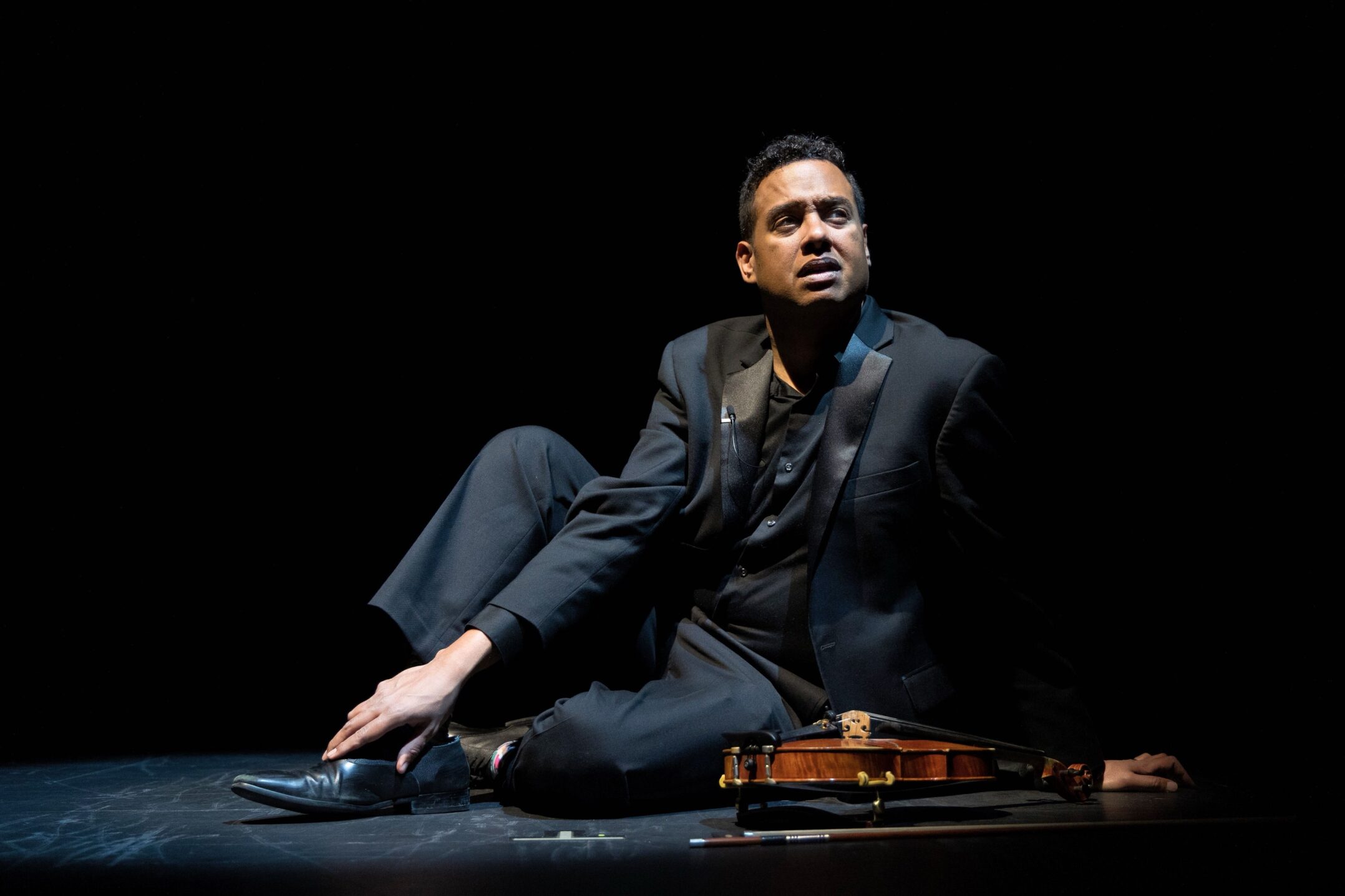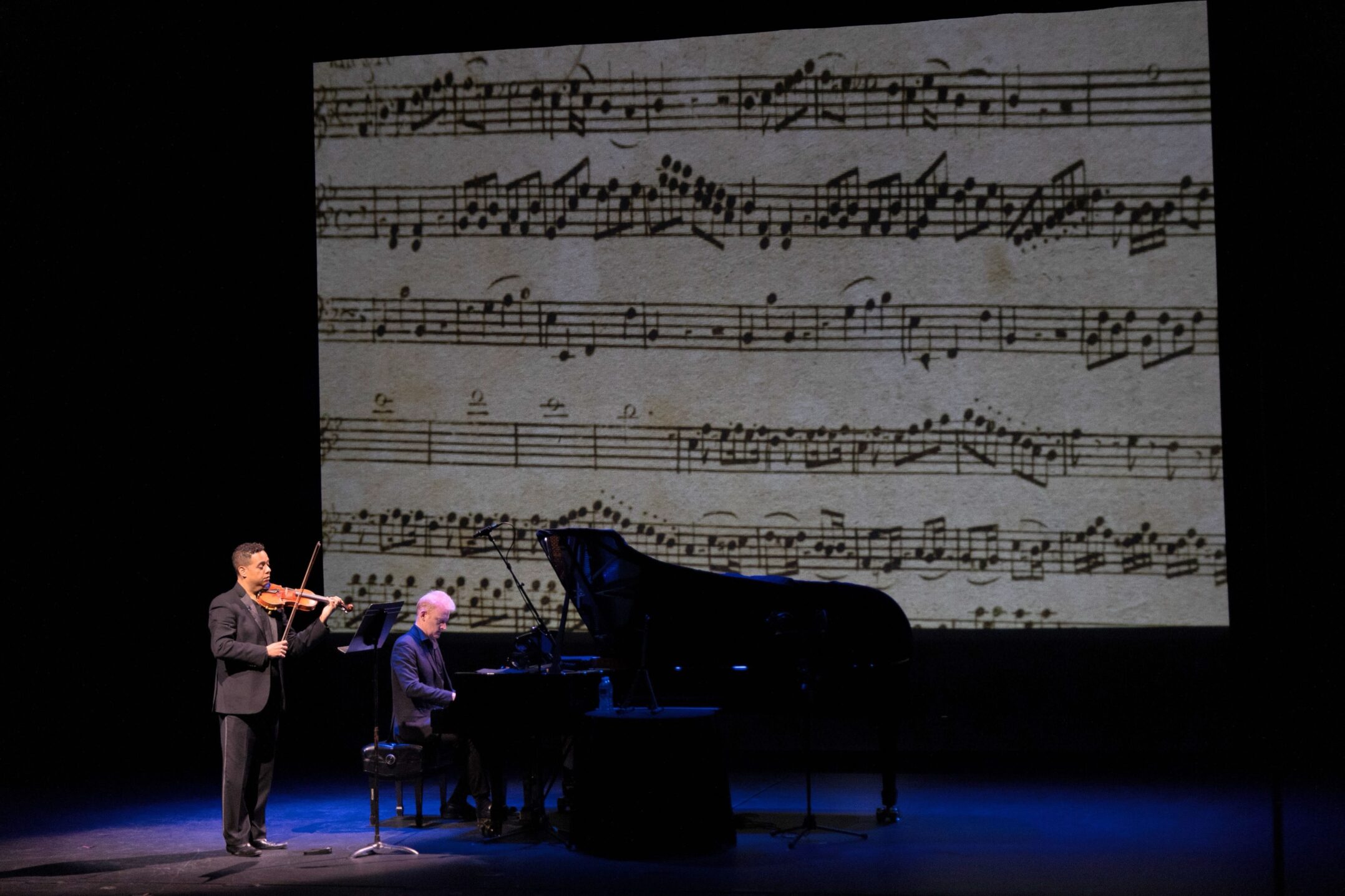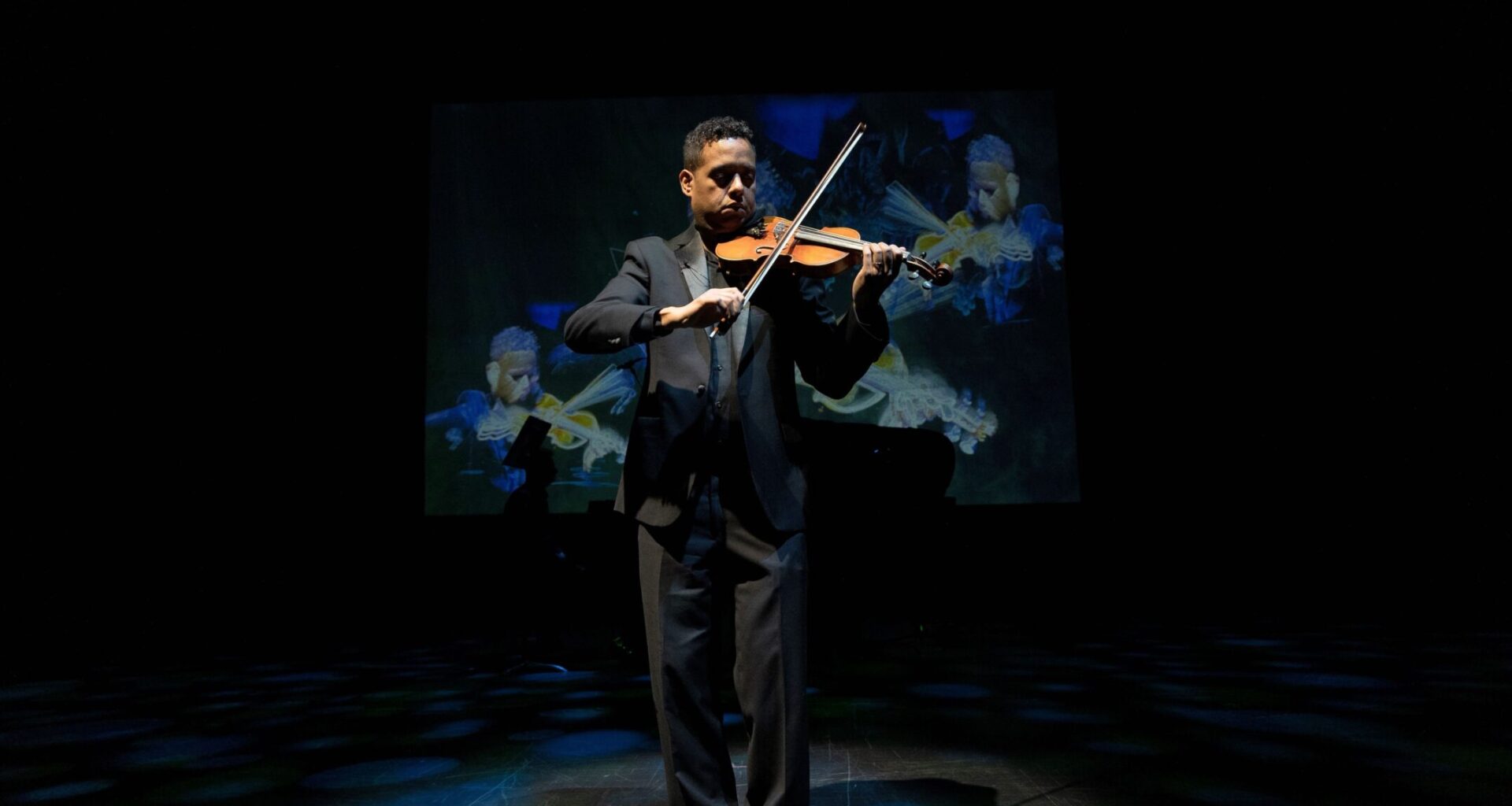When Michael Jorgensen first picked up the violin at age 12, he told his parents he would become a professional musician — a bold claim for someone who had just begun practicing.
Growing up in Cincinnati, Jorgensen was surrounded by music. Some of his fondest memories were listening to his parents’ records and attending local symphony concerts.
“In the concerts, all of the string players sat in the front of the orchestra, and the violins seemed to have the melody a lot,” Jorgensen said. “I was like, ‘I like that. Let me try this,’ and I really loved it.”
Today, Jorgensen’s childhood love for music shines through in his roles as a violinist, chamber musician, associate professor of orchestral strings, concertmaster of the Lehigh University Philharmonic Orchestra, and chair of the music department.
Most recently, Jorgensen created and performed a one-man-play about Joseph Bologne, the Chevalier de Saint-Georges — a mixed-race Caribbean violinist who achieved success in 18th-century France despite the racial barriers of his time.
Jorgensen said he hoped to bring more attention to this classical era composer who many people don’t know about. He said he and Bologne have many similarities.
The play intertwines the stories of Saint-Georges and Jorgensen through narratives and music, illustrating their shared experiences as artists navigating different eras.
Monica Hershberger, a music history professor who has worked alongside Jorgensen for two years, said she’s learned a lot about Jorgensen’s motivation behind the project.
She said the performance reflects how she wants students to approach history, hoping they look at historical figures to see something of themselves in a person or how what a person did relates to something they think is important.
 Michael Jorgensen recently created and performed a one-man play about Joseph Bologne, the Chevalier de Saint-Georges. The production highlights the life of the 18th-century Caribbean composer and explores the parallels between Bologne’s journey and Jorgensen’s own. (Courtesy of Michael Jorgensen)
Michael Jorgensen recently created and performed a one-man play about Joseph Bologne, the Chevalier de Saint-Georges. The production highlights the life of the 18th-century Caribbean composer and explores the parallels between Bologne’s journey and Jorgensen’s own. (Courtesy of Michael Jorgensen)
Hershberger said Jorgensen’s combination of talent, intellect and approachability set him apart as both an educator and performer.
“He is really good at finding things in his colleagues and in his students, and helping to bring those out in beautiful and inspiring ways,” Hershberger said.
Jorgensen also founded the Frequency String Quartet, which is Lehigh’s faculty quartet. It grew from an earlier ensemble he created with the same goal of blending performance and music education.
He said the quartet is a great opportunity for students to see their professors perform and practice what they teach.
The quartet performs once a year at Zoellner Arts Center in the Baker Hall auditorium, but it strives to recreate the intimacy of chamber music’s original setting. To achieve that, the musicians sit near the front of the stage, allowing the audience to experience the energy and excitement of a live performance.
Jorgensen said one of the most rewarding parts of performing for students and the Lehigh community is integrating his performances into his teaching.
“I will reference these performances of concerts that students can come to all the time in my teaching,” Jorgensen said. “Whenever my students come to a concert, I can say, ‘Remember what happened in that concert? This is how I dealt with that.’”
 Michael Jorgensen works closely with his students in both private lessons and ensemble settings. He said performing and teaching go hand in hand, allowing him to bring real-world experience into the classroom. (Courtesy of Michael Jorgensen)
Michael Jorgensen works closely with his students in both private lessons and ensemble settings. He said performing and teaching go hand in hand, allowing him to bring real-world experience into the classroom. (Courtesy of Michael Jorgensen)
Allison Connuck, ‘26, has worked closely with Jorgensen throughout her time at Lehigh.
She studies violin privately with him, plays in the Lehigh Philharmonic Orchestra conducted by him, performs in his chamber music group and works under his mentorship for her senior capstone project.
Connuck said Jorgensen’s experience directly influences his teaching and has helped her improve her skills as a violinist dramatically, with him sharing anecdotes from his time in music school.
“He demonstrates often and draws on his past experiences, which helps us understand how things should sound and what he’s trying to teach,” she said.
For Jorgensen, performing and teaching are inseparable — a balance that defines his work at Lehigh that makes him a better professor.
“Teaching makes me a better performer, and performing makes me a better teacher,” Jorgensen said.

